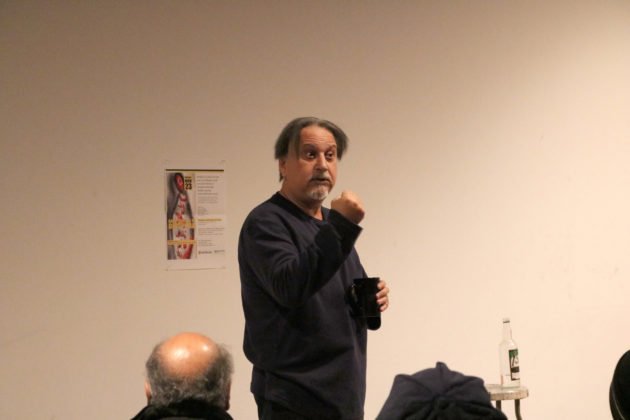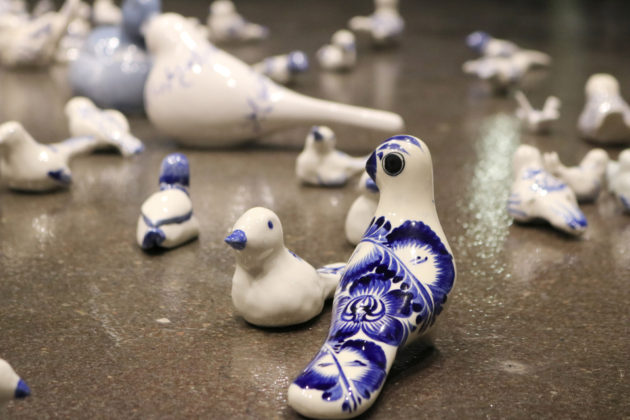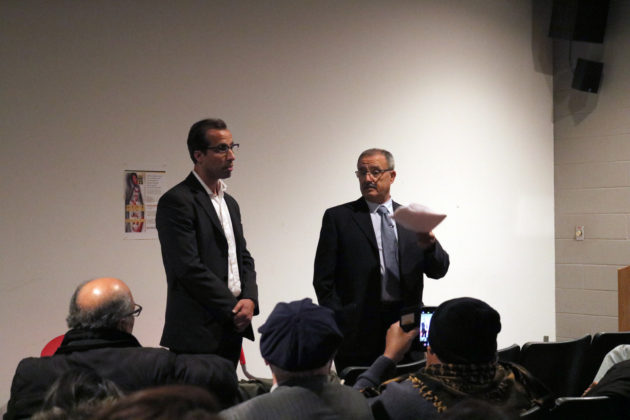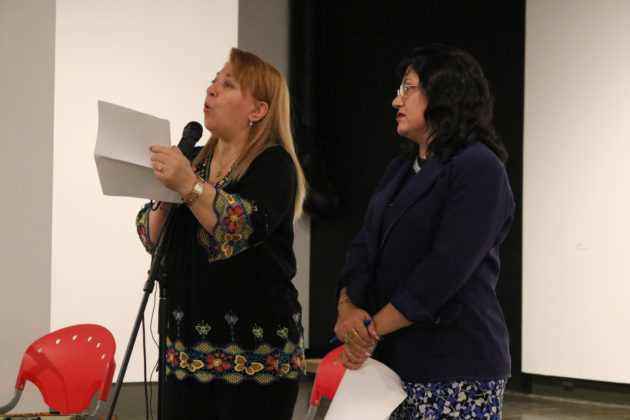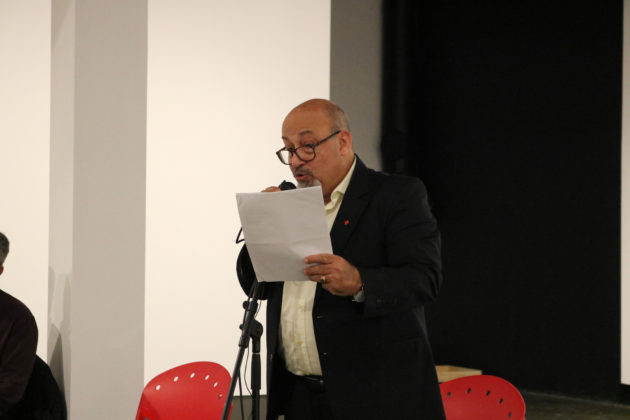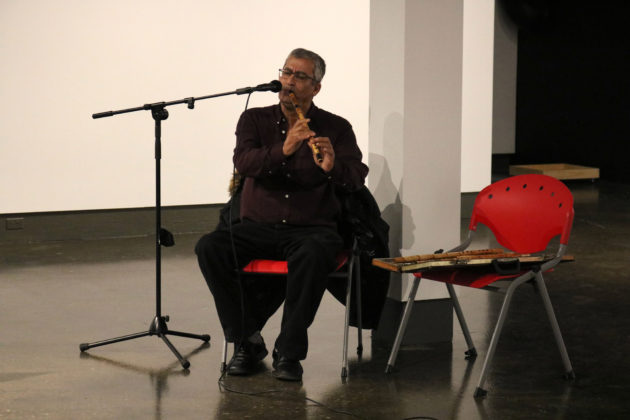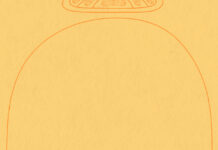“[Diaspora] is a shared human experience,” said Amir Al-Azraki, Renison University College’s assistant professor of Arabic language, literature, drama, and culture. Born in Iraq, Al-Azraki is also a playwright, specialising in diaspora in Muslim literature.
According to Merriam-Webster, diaspora is the “movement, migration, or scattering of a people away from an established or ancestral homeland.” But the diaspora discussed on Nov. 23 at Arab Culture in Diaspora is about the sense of nostalgia and a longing for home all the way from another continent. The event sought to bind communities through cultural art to preserve it.
This was first illustrated through the honest but ardent monologue, “The Mug,” performed by the Iraqi-Canadian actor Addil Abbas Hussain and written by Al-Azraki himself. It spoke of pain, desire, and despair through a disheveled man, a mug, and an alcoholic drink.
Following that, Naim Hilaneh performed traditional music, and poetry was recited by Asma Sinjary and Sozan Jamil. Jamil integrated segments of Iraqi songs and sprinkled them throughout her poetry. Jamil told Imprint that her English and Arabic poems speak on “life, love, communication, and understanding”. Through her words, she strives to urge readers and listeners to reflect on life through a different cultural perspective. But it isn’t as simple as it sounds.
“When I translate poems from Arabic into English, it is difficult because … I miss the spirit of the language and poetry. This was my challenge and my barrier,” explained Jamil.
Not only did the evening present translations of culture through language, it was a translation of sentiments of yearning, one that seemed to be well-received among the Arabic and non-Arabic attendees alike.
The Immigrants, an art installation created by Soheila Esfahani, a “lecturer at the University of Waterloo and member of the Red Head Gallery, Toronto,” was also on display. It featured porcelain birds, both handmade and collected, that “evoke the movement of culture from one place to another by both immigrants and tourists.”
“I live between two worlds,” Al-Azraki said. “I cannot completely integrate into this society but at the same time I cannot go back and integrate completely in my own culture anymore.
“I’m like a floating island.”
























